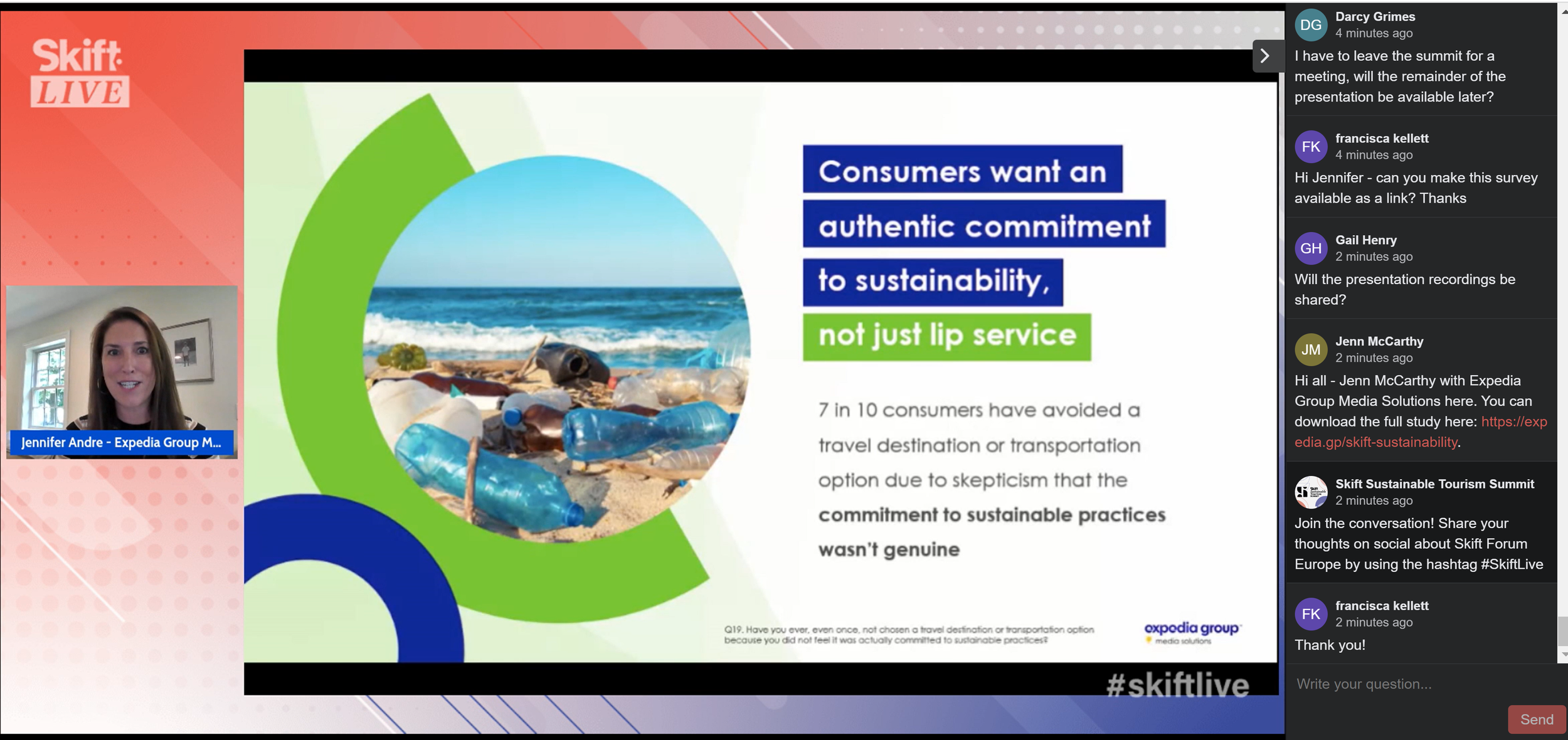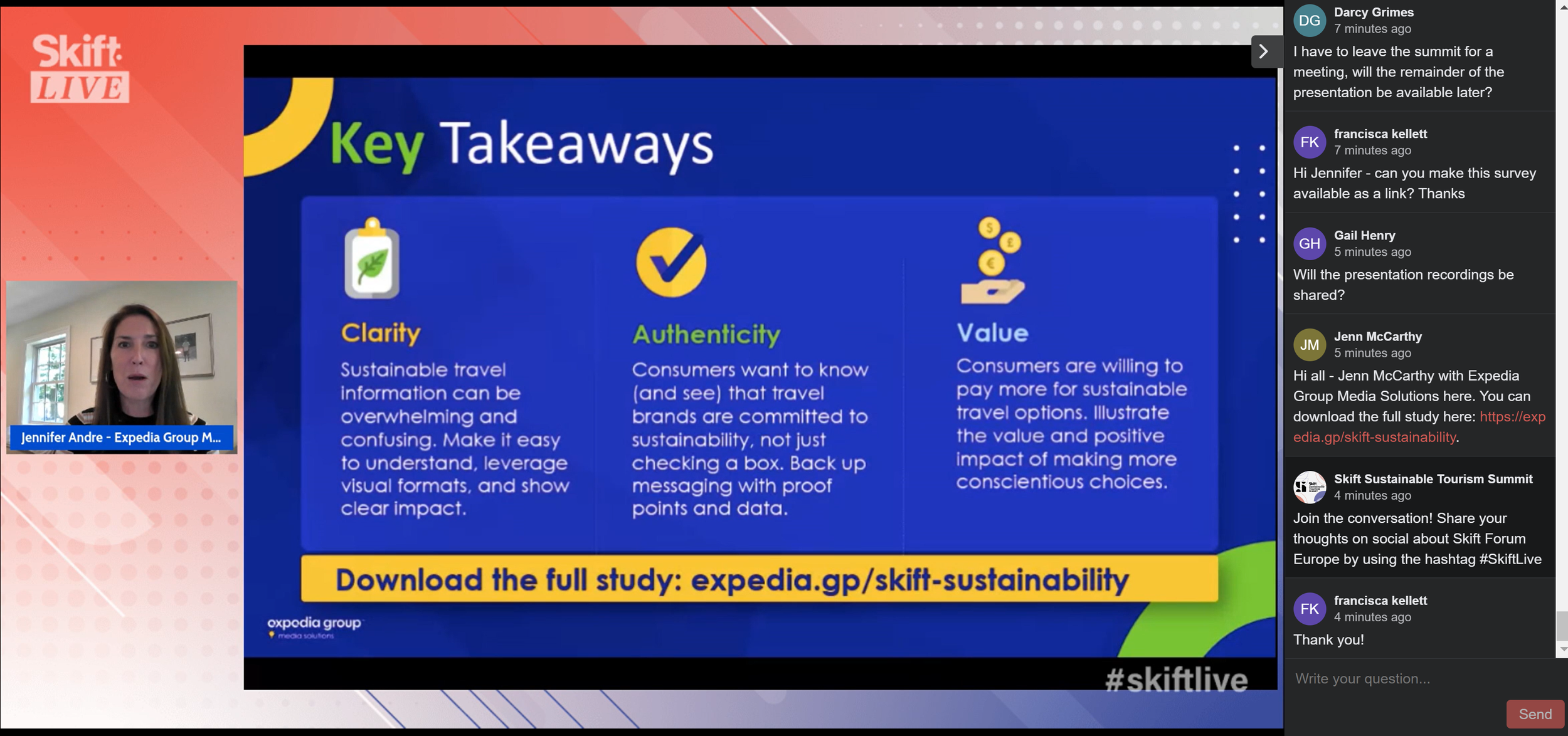Trove’s highlights on Skift Sustainable Tourism Summit 2022
This article was written by Trove Associate Reema Maarouf.
It is evident that the world’s largest corporations are consciously heading toward a time where promoting sustainability in an environmental, economic, and socio-cultural aspect is an urgent call. There is an emphasis on the tourism, travel, and hospitality industries as they hold the greatest impact in our communities. To guarantee long-term sustainability, a balance must occur between the needs of travelers, the environment, the government, the industry, and host communities should all be addressed.
To explore further actions being taken across the industry directly from thought leaders, Trove Associates Reema Maarouf and David Nicholson attended Skift’s Sustainable Tourism Summit 2022 led by Skift editors and research analysts. There was huge insight given regarding topics on how travel companies are tackling climate change, traveler expectations, top-tier community-led approaches, and how online travel agencies look to foster sustainability and social impact across different sectors.
When talking about consumers’ needs in a trip planning process during the summit, after conducting research on motivations, behaviors, and Influences on travelers, Jennifer Andre from Expedia Group Media Solutions said that consumers want and were looking for an authentic commitment. Consumers are making sacrifices and are willing to pay more for sustainable experiences.
Aditi Mohapatra, VP of Global Social Impact and Sustainability at Expedia Group, highlighted that there are constant efforts targeted towards finding ways to make marketplaces and advertising more inclusive overall.
Inge Hujibrechts, Global Senior Vice President of Sustainability, Security, and Corporate Communications at Radisson Hotel Group, noted that all B2B corporates are heading towards achieving net-zero targets. Moreover, Jane Ashton, Sustainability Director at easyJet, talked about the importance of encouraging hotels to hold the sustainability certification.
Moreover, when discussing models for better collaboration across sectors, Elke Dens, Global Director of Programmes at The Travel Foundation, presented Deloitte’s study and stated that the top drivers of challenges when creating partnerships nowadays are investors, governments, and regulators. Dens also followed up by sharing an interesting insight: “Destinations are everyone’s business, by design, it is a public and private co-ownership, therefore companies should be on the outlook to join forces and collaborate rather than compete and compare.”
There was a very clear pattern throughout the Summit: the past two years of pandemic and recovery had led to huge changes in the way the industry operated, altered business goals and leaders’ priorities in the industry. Flexibility and Sustainability are two main core components that the industry is heading towards achieving. There has been great advocacy and there always is room for more as continued actions with impact will be implemented. Impact not only on preserving our planet but on our communities and stakeholders.
If you were looking to develop your service, product, or destination to compete in your area of expertise, reach out to one of our destination development advisors at Trove to discuss how you can develop through moving towards a more sustainable direction or simply through promoting your existing initiatives using the latest digital tools and trends to reach your targeted audience.




